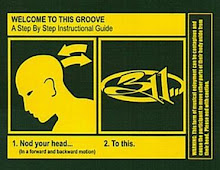
In 1979, Delaware Governor Pete Du Pont concluded that the Republican Party had to build a "farm team" if it was ever to become a governing majority, so he started GOPAC. Through countless campaign seminars, workbooks, audiotapes and years of grassroots organizing, GOPAC became the Republican Party's preeminent education and training center. Under Newt Gingrich's leadership in the 1980s, GOPAC taught candidates how to run campaigns and talk about issues in a way that galvanized the far right base while not completely alienating moderate voters. Gingrich's success became evident in 1994 when Republicans won 12 additional governorships (up to 31 from 19) and won control of Congress (which they did not lose until 2006).
Republicans claimed that the resurgence was due to fiscally conservative policies, but a large number of their governors raised taxes or proposed to raise taxes, including Governor Mike Huckabee of Arkansas. Detractors say that personality and star power trump ideology and issues.
That is where Governor Palin fits in and what closely links her to President Bush. Both of the candidates portray or portrayed themselves as Washington outsiders and nicknamed themselves "A Reformer With Results." They are or were attractive (it was hard to stay young and attractive for Bush these last eight years) and came out of nowhere to take center stage in a presidential election. Moreover, these were President Bush's campaign promises in 2000:
- Energy independence
- Smaller government
- Quality health care for everyone
- "No Child Left Behind" education policy
- Rebuild our military to re-establish our stature in the world
- Social Security privatization
- Funding for religious charitable organizations, not liberal ones
I hear a lot of those same policies being supported by Governor Palin. She separates herself from the overt failures, like "No Child Left Behind," only to re-brand them and roll them out again. People cannot say that she isn't intelligent because she seemingly learned a lot at her Republican training seminars about how to unite the base and seem harmless and forthright to the independents.
David Frum, former Bush speechwriter, wrote on his National Review blog, "George W. Bush had very slight executive experience before becoming president. His views were not well known. He won the nomination exactly in the same way that Palin has won the hearts of so many conservatives: by sending cultural cues to convince them that he was one of them, understood them, sympathized with them. So that made everything else irrelevant in 2000 - as it seems again to be doing in 2008."
I hope that voters are not swayed by her charm and place in history, but undoubtedly there will be a few. In the Sydney Morning Herald, Naomi Wolf wrote "Just about any woman who was not born into privilege, has small children at home, and is not a cannibal or a satanist would elicit initial roars of approval from women in general, and surely from a group that has been silenced and trivialised for so long. When you've been making the coffee forever, it's nice to imagine leading the free world."
Whether or not this gamble will pay off for John McCain may be irrelevant to Republicans. Of course they want McCain to win, but they now have a new point person to lead them back to the White House should McCain lose. Even better, they have a female George Bush to push their ideology on to the masses. What could be better than that?
David Frum also wrote on his National review blog, "Sarah Palin is exciting and appealing. But what kind of executive is she? None of us have even the remotest idea. We don't know whether she takes advice from a wide circle or a narrow one, whether she tends to decide quickly or slowly, whether her budgets are realistic, whether she is calm or excitable in a crisis. We have no idea whether she is decisive or vacillating, prompt or procrastinating, curious or incurious. These things matter enormously in a president. Yet they do not matter much to us. And that's a big problem."
That doesn't seem to be a big problem for most Republicans who only clamor for an electable leader to be the face of their politics. However, it might be a big problem for women. Naomi Wolf wrote that "Palin's sinking approval ratings show that, while such women thrill to symbolic validation, they are not fools. They have begun to notice how Palin is trotted out like a model at an auto show to be introduced to heads of state as if they are local car dealers, and how the media are allowed to take pictures but not ask questions ("That's me with Henry Kissinger!"). They also notice that the economy is imploding, while Iraq is calming down only because the US is paying insurgents and al-Qaeda sympathisers the equivalent of a monthly car payment per person not to kill its soldiers."
It will be interesting to see if the Republican training school can prepare Palin to run again after her uneven performances this election. In the New York Times, Gail Collins wrote "The people boosting Palin’s triumph were not celebrating because she demonstrated that she is qualified to be president if something ever happened to John McCain. They were cheering her success in covering up her lack of knowledge about the things she would have to deal with if she wound up running the country." While that may be true, nobody loves a fairy tale ending more than Americans.

No comments:
Post a Comment